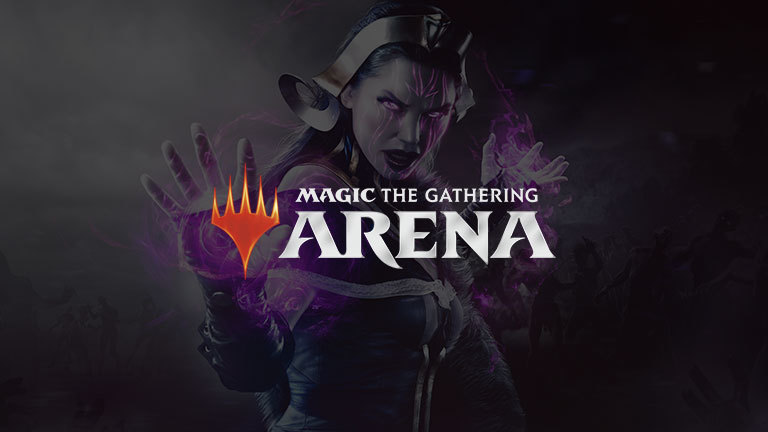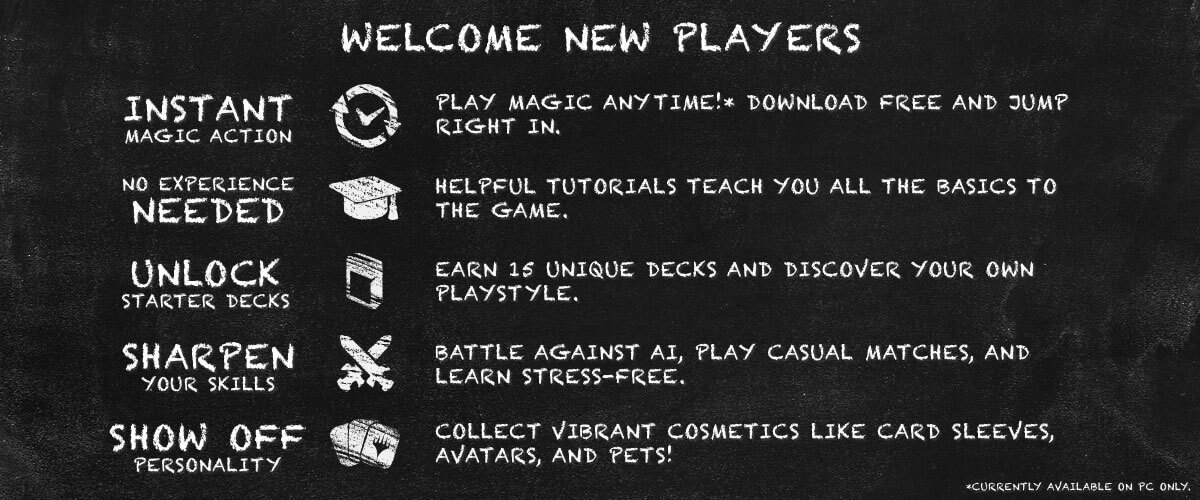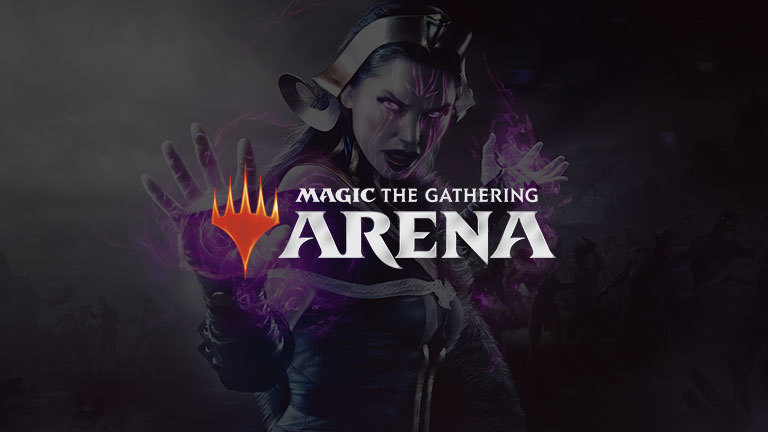
Magic: The Gathering is getting more popular every day with tons of new players, sets, formats, and ways to play. MTG Arena makes it easier than ever to learn the rules and dive straight in. But one big question remains: is this piece of software superior to the classic tabletop game?
If you’re new to Magic, you might not know the differences between playing the game in your local game store (LGS) and on your PC back home. Both of these ways are fun and legit ways to play - you can learn the rules, play regularly for prizes, and qualify for big esports events such as the World Championship playing either. So let’s look at their pros and cons and decide which one is better for you!
Paper cards
First and foremost, MTG is a game of physical cards. It’s been around since 1993, has single-handedly invented the Trading Card Game genre, and is still the most popular such game with tens of millions of players worldwide. That’s impressive and all, but what makes the game great, and what are its drawbacks?
Pros
- History. If you ever get the chance to hold a card like Black Lotus in hand, you just feel the story it has. Playing it in a tournament (which you could still do) takes you 20 years back in the history of gaming. This is something only the paper game can really do.
- Endless ways to play. Magic makers aren’t wasting their time. In these nearly 3 decades of work, they have pushed out 15,404 unique cards. That’s a lot of cards. You can use practically all of these to build decks for the game’s various formats and play them. You can technically put all of them in a single deck, too, but we do not recommend that. According to official rules, you need to be able to shuffle your own deck unassisted.
- LGS support. Nothing beats the experience of going to your local card shop for a Friday Night Magic, meet some friends, swing some cards, and get some tangible prizes. It was fun in the 90s and it’s just as fun today.
Cons
- Expensive. Those cards come with a price, and then there’s the secondary market. Looking for the 4th copy of Temple Garden for your Selesnya deck? That would be $14, thank you very much! Now multiply that by a few hundred across all your decks. Ouch.
- Complicated. Magic uses the world’s greatest computer to calculate and enforce rules - your brain! That can sometimes be a faulty computer, too. If you ever get confused about a messy mechanic such as Mutate, you’ll need an article like this to make things clear. That’s never an issue in a digital card game.
- Destructible. We can sit here and ponder the philosophical aspects of the passage of time and brittle nature of all material things, but let’s be practical - these cards are expensive and are made of simple paper. Drop a card in your cup and it’s no longer usable. And that sucks, even if the card was a simple Forest, let alone a Black Lotus.

Magic: The Gathering Arena
Coming on the heels of ultra-successful digital card game Hearthstone and borrowing some design ideas from it, MTGA is the definitive digital version of MTG. This flashy, fresh, and a rather convenient piece of software is a very faithful and feature-complete representation of the paper game for PC (and soon mobile) that renders older MTG video games such as Duels of the Planeswalkers and even Magic: The Gathering Online (MTGO) almost useless. Just like paper Magic (or everything in life, really) it has its own set of advantages and disadvantages. Let’s list some of them.
Pros
- Easy to follow rules. MTGA is quick, snappy, and convenient. It is free to download and features a beautiful tutorial and color challenges aimed at teaching new players the ways of the mana. This makes it easier than ever to pick up the game if you’re brand new. Paper MTG doesn’t even print rulebooks anymore, they rely on older players teaching new ones at events and have a rather thick document with the complete rules for use in tournaments. An additional amazing feature of MTGA is the ability to change languages. Flick a switch and your Forest becomes a Wald in no time. In fact, two players can see different languages in the same game, and that’s as accessible as it gets.
- Pleasing to the eye. That’s rather significant because ugliness and unintuitive interface are the biggest problems players have with the antiquated MTGO game. MTGA is pretty!
- Support. MTGA is very well supported in at least two ways. First, Wizards of the Coast themselves have a dedicated team tasked with improving the game, solving problems and putting out new content, including unique features such as the Historic format. Second, the game is supported by an active community and content creators who stream, make YouTube videos, and create written articles every day of the weak, so you’ll always have something to sink your teeth in.
- Tournament mode. One of the best things this piece of software did to the game of Magic was the way it made competitive play… you know, interesting to watch? As cool as it is to see Hall of Fame pros pilot innovative and meta-breaking decks in a game with thousands of dollars on the line, let’s face it - you end up watching two dudes sitting on a table and flinging little pieces of paper at each other. When you watch the same thing in MTGA, the cards are easy to read and you see the occasional dragon fly across the screen, which is something our inner child secretly loves to watch.
Cons
- Not the full game. Probably the biggest issue with MTGA (one that’s not a problem for the otherwise inferior MTGO) is its limited scope. MTGA only supports cards printed in the last couple of years and a handful of older cards brought back for the Historic format. This means that some of the most popular ways to play Magic, such as the formats Vintage, Legacy, Modern, Frontier, and most notably Commander, are not playable inside MTGA and the sad reality is they probably never will.
- PC only. While Wizards are clearly working on this issue, the game is currently playable only on a computer. It is available for direct download from the Magic site or inside the Epic Store. Luckily, the versatile Unity engine used by the title makes it possible to port in various other systems. Will we see MTGA on Switch one day? Why not!
- You play by yourself. Remember when we said limited support was the biggest issue? Scratch that. The real disadvantage of this otherwise beautiful game is that it fundamentally lacks the very physical and social aspect of Magic by its very nature. Even if Wizards implement all 15k cards from their catalog and fix every software issue there is, you still end up sitting in your comfy chair at home and clicking a mouse. Meanwhile, a trip to your LGS will always end up in a face-to-face game with other players, usually followed by the iconic question “cards for trade?”, the flipping of binders, admiration of each other’s rare cards and many times… life-long friendships. This is something a video game just isn’t as good at. Not currently, anyway.
So, as you can clearly see, both paper Magic and MTGA have their upsides and drawbacks. Which one works better for you? Hopefully, by now you have a very good understanding and a clear answer... And as the young girl from the old taco commercial wisely says - “Why not both”?






























